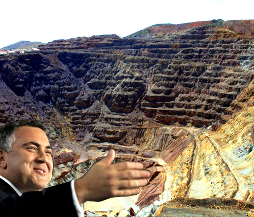Stats become platform for broad calls
 The latest unemployment stats have already been used as evidence for a number of political stands, including calls for new budgetary considerations and industrial relations reform.
The latest unemployment stats have already been used as evidence for a number of political stands, including calls for new budgetary considerations and industrial relations reform.
Figures from the Bureau of Statistics show 3,700 jobs have been lost this year, moving the unemployment rate from 5.8 to 6 per cent. This is the first time the rate has hit 6 per cent since July 2003.
The number has topped the unemployment rate during the global financial crisis, when it peaked at 5.9 per cent.
Federal Treasurer Joe Hockey says the numbers show the scale of the challenge ahead for the Coalition Government. He has repeated claims that the May budget must be “focused on growth”, to combat the perceived economic crisis.
The new peak has been coming for some time, with Labor's election-eve Economic Statement last year saying unemployment would hit 6.25 per cent by mid-2014. The Coalition’s first budget statement in December 2013 said the same thing.
“The bottom line is we have to lift the tide so that all boats rise,” Mr Hockey said this week.
“It doesn't mean you can't have some fiscal consolidation. There are many factors at play. Many factors at play including the fact that interest rates are still comparatively low,” he added.
“We can have fiscal consolidation without harming growth and if we have better use of existing taxpayers' money then we can perhaps even enhance growth.”
The Australian Chamber of Commerce and Industry is using the figures to push for workplace reform, particularly around the Fair Work Act.
Burchell Wilson, chief economist with the Australian Chamber of Commerce and Industry, says it is “entirely regrettable” that the current government has not grabbed hold of the Chamber’s recommended changes to the Fair Work Act.
The Chamber wants more limits on unions, expanded productivity and competitiveness criteria for agreements, a revision of modern awards to meet “contemporary trading conditions”, non-union greenfield agreements, as well as numerous other adjustments.
“Australian workers in Australian workplaces will continue to suffer until the elements of the Fair Work Act that are impeding productivity and employment growth are addressed,” Mr Wilson said.
Mr Hockey says the path to budgetary surplus has not been hindered by the latest numbers, though the International Monetary Fund has warned against excessive spending and cutting, saying the economy may be more fragile than the Treasurer has allowed.








 Print
Print